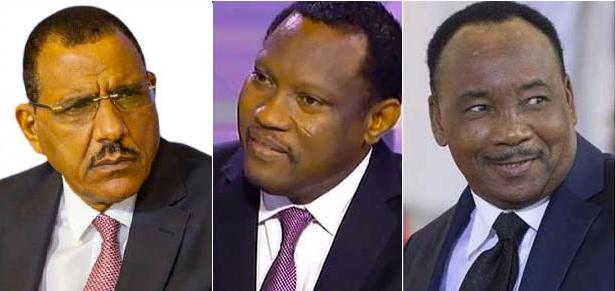Mali’s election: why Soumaïla Cissé lost and IBK was re-elected
Published on Sunday 26 August 2018 Back to articles
Mali’s President Ibrahim Boubacar
Keita
Mali’s incumbent President Ibrahim Boubacar Keita (IBK) has been returned to office after winning the second round of the presidential, held on 12 August with 67.17% of the vote. His opponent, Soumaïla Cissé won 32.83% of the vote. The Constitutional Court has until 22 August to validate the result.
Several opposition figures describe Cissé as an intelligent, calm and thoughtful man who would have all the assets to be a good president. Aged 68, he is from Niafounké, in the Timbuktu Region, but has been married for 40 years to Astan Traoré who is a member of a prominent southern family. IBK was the pre-election favourite to win but many people, including ourselves, thought that Cissé might pull it off. So why did he lose and why was IBK re-elected?
Why did Cissé lose
Besides fraud and irregularities — which are unlikely to have explained the more than 34% difference between the two candidates — local analysts put forward five specific reasons why Cissé lost and two broad reasons why IBK won. The reasons given for Cissé’s loss are:
- He failed to organise a united front against the incumbent president. The king-makers — including Aliou Diallo and Cheick Modibo Diarra who came third and fourth in the first round — did not grant him their vote transfer by telling their supporters to vote for Cissé in 2nd
- While the rainy weather during the second round on 12 August may have deterred many Malians from going to the polling stations, many were discouraged by having come out to vote for one or other of the remaining 22 opposition candidates, only to find that they were no longer in the race. Having received no guidance on who to vote for in the second round, felt they had little choice but to opt for IBK. This was a major organisational failure by Cissé and his party.
- Cissé made several other mistakes. Most seriously, he had moved away from his base. After his 2002 defeat to former President Amadou Toumani Touré (ATT), he spent nearly ten years away from Bamako at the Union économique et Monétaire Ouest Africaine (UEMOA) in Ouagadougou. He made the same error in 2013, leaving Bamako to sit in the Pan-African Parliament in South Africa. He was therefore distant from the Bamako elites.
- Some felt that he did not have the right people around him. Several felt that his choice of Tiébilé Dramé as campaign manager, a divisive character on the Malian political scene, was a mistake.
- Several accused Cissé of running an aggressive campaign that prioritised attacking IBK’s personality before proposing policies to unify Mali. ‘When you want to be president of Mali, you must first reassure the Malians,’ said Moussa Mara, one of the main supporters of Cheikh Modibo Diarra, who came fourth in the first round.
Why did IBK win
In spite of his dismal presidency — in which he failed to implement the Algiers Peace Agreement and saw violence and insecurity increase dramatically in the centre of the country — there were two broad reasons why IBK won.
The first was his status as the incumbent president. Gilles Yabi, founder of the West African think tank Wathi, said: ‘Generally, the outgoing president is a favourite for re-election, irrespective of his record in office.’ The incumbent has many benefits, not least that he already embodies a form of state authority. When one considers the particular situation in Mali and the crisis in which it has plunged, it is likely that many voters were not motivated to support a promise of change that could further destabilise an already complicated situation.
This status of outgoing president also ensured IBK a higher visibility than his competitors. His tour around the country was well publicised, especially on social networks, thus enabling him to greet and seduce more voters than his competitors. In an essentially rural electorate, a visit and speech from the president is a powerful draw-card.
His second advantage is that he faced a dispersed opposition. In the first round, IBK had 23 candidates in front of him. The opposition therefore appeared crumbled and scattered. In the second round, his opponent, Soumaïla Cissé failed to generate the prospect of major changes that so many of the electorate appeared to have been craving before the election started.
A third possible plus point for IBK is that he was able to claim several years of economic growth of 5% or more. This was largely the result of his agricultural policy, which has seen Mali become Africa’s largest cotton producer, and a buoyant mining sector. With nearly half the country living below the poverty line, however, the sight of this growth going into the hands of corporates and being embezzled by IBK’s nepotistic and clientelist regime would probably have stood against him amongst a better informed electorate.



